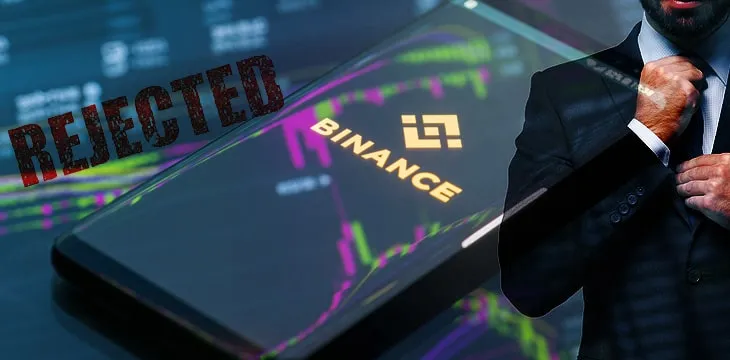|
Getting your Trinity Audio player ready...
|
The Liechtenstein Financial Market Authority (FMA) has rejected Binance’s application to become a shareholder of Union Bank, a Vaduz-based private bank that was caught in a Venezuelan graft investigation.
Wolfram Kuoni, president of Union Bank, was looking for a shareholder to purchase an 82% in the bank to prevent it from going under—an offer that Binance CEO Changpeng Zhao (CZ) reportedly took in 2019. However, CZ’s alleged proposals to buy the company and the digital currency exchange’s operations led the FMA to reject his application.
Why Binance was rejected
The deal began to go sour when CZ proposed buying his stake in Union Bank in a roundabout, intransparent way. Instead of just paying for his stake in Swiss Francs (CHF), CZ proposed buying his stake in digital currency, which would be converted to CHF via Chinese-owned Liechtenstein Bank Mason. In addition, CZ did not want to be the individual to provide the digital currency to purchase the stake, according to reports. Instead, he allegedly proposed that CL1 Foundation, a company under the Binance Group umbrella, be the ones that provide the digital currency that would ultimately be used to purchase the stake in Union Bank.
If all was well, CZ would have purchased 82% of Union Bank, and Union Bank would have transitioned from being a traditional bank to a platform for digital currency customers. However, this convoluted deal was a bit too intransparent for the FMA to approve, and the FMA rejected CZ’s application to become a shareholder, according to local reports. Now, instead of becoming a digital currency platform, Union bank has begun the liquidation process.
A spokesperson for Binance was quoted by CoinDesk saying that, “Binance did not try to invest, and did not try to put CZ on the board.”
Binance operations
It is no coincidence that the FMA rejected CZ’s application to buy a major stake in Union Bank.
Recently, government agencies in Brazil and Malaysia have ordered the platform to cease and desist operations within their countries, stating that Binance has not registered with the proper financial authorities. In addition, the U.S. Securities and Exchange Commission (SEC) is preparing to investigate Binance and the transactions that take place within the company. That being said, there are quite a few government agencies around the world that are wary of Binance and the legality of their operations.

 07-06-2025
07-06-2025 





